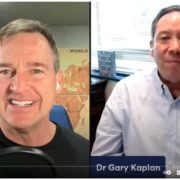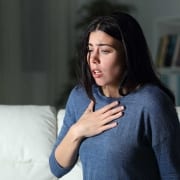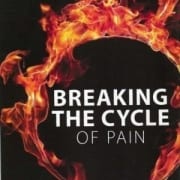Dear Kaplan Center Community,
As I reflect on the past year, I am particularly grateful for our connection through the Foundation for Total Recovery. Indeed, you are the very reason we exist. Whether you are a current or prior patient, a friend or family member of one, or simply a curious soul who reads our newsletter, our entire reason for doing what we do comes down to one thing: you.
Your health. Your wellness. Your total recovery.
In the United States alone, 20 million people suffer from chronic illness but don’t have the knowledge you have now (or are learning). Unfortunately, the medical community, at large, remains largely unaware of the connection between a dysregulated immune system and neuroinflammation—a brain on fire—so people just like you continue to get misdiagnosed or dismissed every day.
As I write this, we are preparing for something big next year—and I am asking for your help and generous support to make it a success.
On February 9-11, 2022, Georgetown University and the Foundation for Total Recovery are partnering to host a virtual medical conference titled Autoimmune Encephalopathy Secondary to Infectious Disease: A New Perspective on the Pathogenetic Interaction of the Immune System, Infection, Stress and Chronic Disease. A panel of world-class physicians will address how we can completely reimagine the way we view, diagnose, and treat chronic illness.
This is where your generosity can make a big impact. It is imperative we educate both the medical community and the public on this new perspective. It will be a beacon of hope in the shadow of looming sickness, especially during the holiday season when problems intensify for many who are suffering. You can give them something they long for but don’t even know exists for them: hope.
Your generous gift of any amount is fully tax-deductible. Even more important, you can help us reach the millions of people who are plagued by these illnesses but see no way out.
Without you, this foundation would not exist. We are eternally grateful for your support and for trusting us on your path to optimal health. Thank you for helping people like you find the answers they so desperately seek, and for giving us a platform from which to share such life-changing information.
Want to learn more about the conference the Foundation is co-hosting?
The mission of this conference is to help address the experiences all too many of you have had. That of going to doctor after doctor earnestly describing your symptoms and seeking answers, only to be dismissed, given yet another pill, or worse, told “It’s all in your head.”
This conference will bring hope and healing through knowledge to the masses and the medical community alike. Even the media will be present to ensure this message has the most visibility possible.
Some of the best doctors in the world—top specialists in their field hailing from institutions such as Oxford, Duke, and Columbia—will be sharing new research and expertise with doctors, patients, and the general public about new ways of viewing, diagnosing and treating chronic conditions like:
“The way it’s always been done” has failed us. It’s time to radically rethink our entire approach so all who suffer can finally find relief and experience total recovery once and for all.
You can view the conference agenda here and read in-depth about it here.
From all of us at the Foundation for Total Recovery, we wish you the happiest holiday season and a truly wonderful, prosperous, and healthy 2022.
With warmth,
Dr. Gary Kaplan, DO, DABFM, DABPM
Program Chair
Clinical Associate Professor
Department of Biochemistry and Molecular & Cellular Biology
Georgetown University School of Medicine
Washington, DC 20057
P.S. The conference is open to the public and we’d love to see you there! If you are interested in joining us you can learn more here and sign-up to join us here.
The Foundation for Total Recovery, Inc. is a not-for-profit organization whose goal is to help find a cure for and to help better understand, diagnose, treat, and ultimately prevent the progression of neuroinflammatory disease. In addition, the foundation offers important resources to help educate and support patients suffering from chronic pain, as well as their caregivers and doctors, and those involved in researching chronic pain. All U.S. donations to the Foundation for Total Recovery are tax-deductible.





